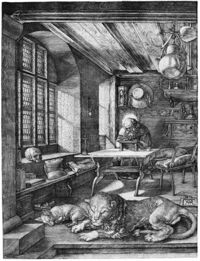Difference between revisions of "Read a book"
Zachary Yan (talk | contribs) m |
Kevin Wang (talk | contribs) |
||
| (5 intermediate revisions by 3 users not shown) | |||
| Line 1: | Line 1: | ||
| − | Sometimes, the best way to learn the clues about a given book is to read that book. Reading is widely agreed to be the most effective study method for internalizing clues about works of [[literature]] or specific non-fiction books in categories such as philosophy or [[social science]], and for gaining "[[ | + | {{Studying}} |
| + | Sometimes, the best way to learn the clues about a given book is to '''read that book'''. Reading is widely agreed to be the most effective study method for internalizing clues about works of [[literature]] or specific non-fiction books in categories such as philosophy or [[social science]], and for gaining "[[real knowledge]]" about those books. Rather self-evidently, it provides players with all the clues within that book. It's also the least time-efficient improvement method, since it's not practically possible to read the entire [[canon]], so players often have to pick and choose by reading books that are most interesting or strategically necessary for their improvement while learning from other sources about the rest. | ||
Also applies to studying [[textbook]]s in categories such as [[history]] or [[science]], where such books exist; concerns about efficiency are less pressing when textbooks are involved. Listening to an audiobook also counts as reading a book. | Also applies to studying [[textbook]]s in categories such as [[history]] or [[science]], where such books exist; concerns about efficiency are less pressing when textbooks are involved. Listening to an audiobook also counts as reading a book. | ||
| − | The phrase "Read a book," which is often used sardonically to dismiss the use of more "artificial" study methods, was found on old [[ACF]] T-shirts from the mid-2000s (cf. [[Guy Tabachnick]]). It also appears in [ | + | The phrase '''"Read a book,"''' which is often used sardonically to dismiss the use of more "artificial" study methods, was found on old [[ACF]] T-shirts from the mid-2000s (cf. [[Guy Tabachnick]]). It also appears in [https://www.youtube.com/watch?v=TgcZNpmOKuk this video] (explicit). |
[[Category:In-jokes]] | [[Category:In-jokes]] | ||
[[Category:Quizbowl improvement methods]] | [[Category:Quizbowl improvement methods]] | ||
Latest revision as of 08:28, 11 March 2023
Sometimes, the best way to learn the clues about a given book is to read that book. Reading is widely agreed to be the most effective study method for internalizing clues about works of literature or specific non-fiction books in categories such as philosophy or social science, and for gaining "real knowledge" about those books. Rather self-evidently, it provides players with all the clues within that book. It's also the least time-efficient improvement method, since it's not practically possible to read the entire canon, so players often have to pick and choose by reading books that are most interesting or strategically necessary for their improvement while learning from other sources about the rest.
Also applies to studying textbooks in categories such as history or science, where such books exist; concerns about efficiency are less pressing when textbooks are involved. Listening to an audiobook also counts as reading a book.
The phrase "Read a book," which is often used sardonically to dismiss the use of more "artificial" study methods, was found on old ACF T-shirts from the mid-2000s (cf. Guy Tabachnick). It also appears in this video (explicit).
